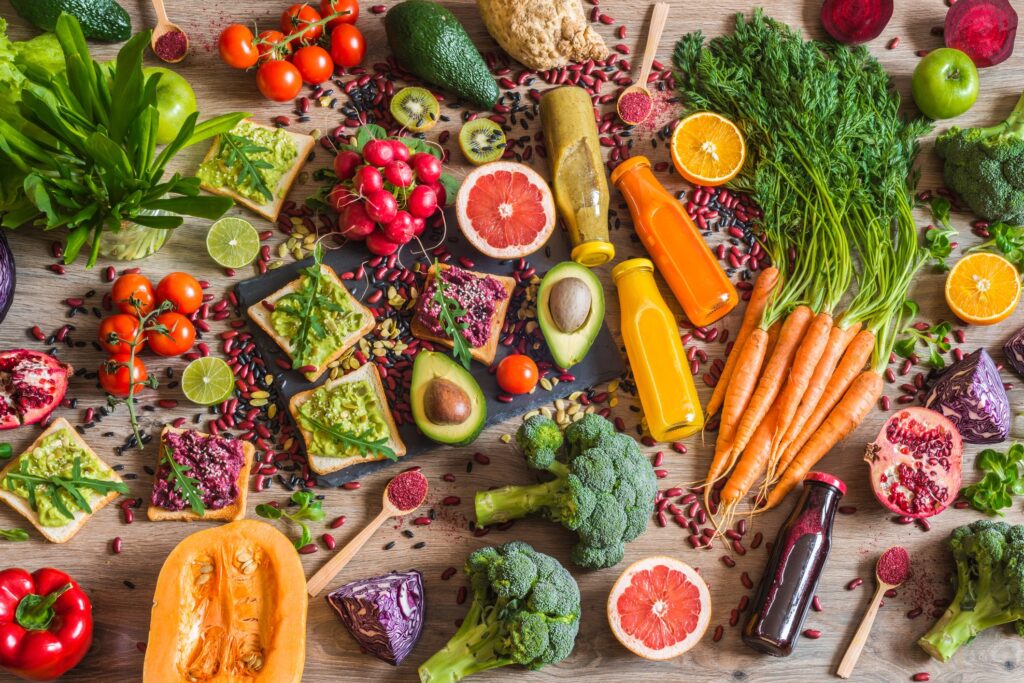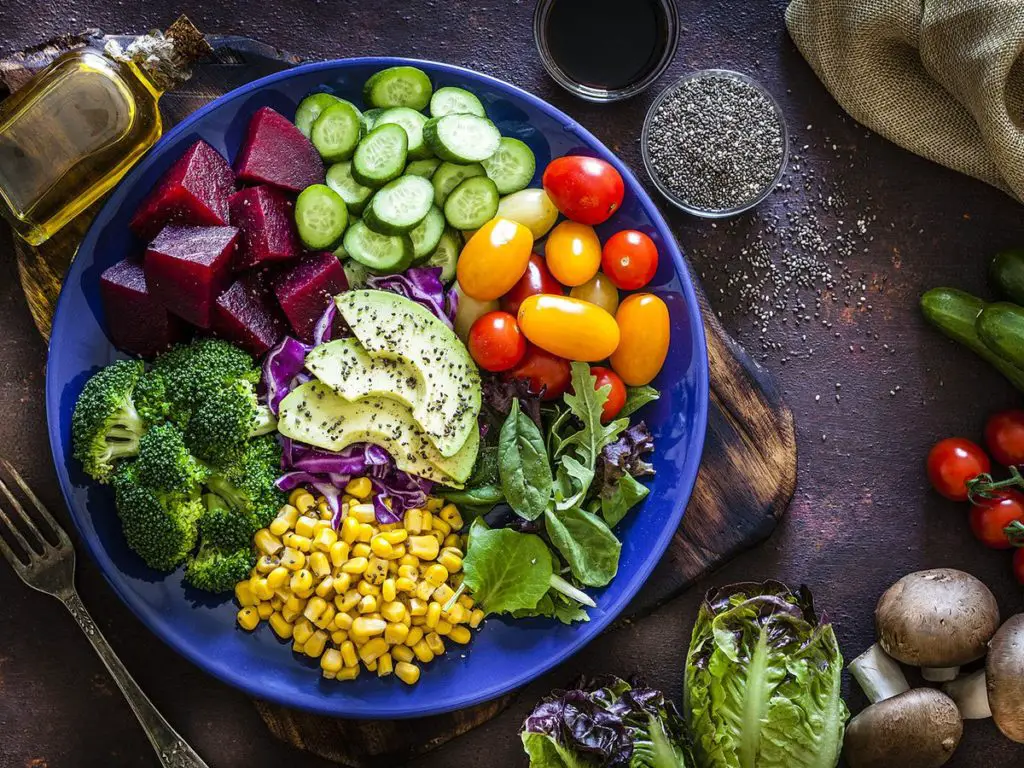The vegan diet has gained significant popularity over the past decade, not only for its ethical considerations but also for its potential health and environmental benefits. Whether you’re considering going vegan or are simply curious, this blog will provide a comprehensive overview of the rules, benefits, and risks associated with adopting a vegan lifestyle.
What is a vegan diet?
A vegan diet eliminates all animal-derived products, including meat, dairy, eggs, and even honey. Instead, it focuses on plant-based foods such as fruits, vegetables, grains, legumes, nuts, and seeds. Vegans also avoid products made with animal-derived ingredients, such as gelatin or certain food colorings.
Rules of a vegan diet
1. Avoid all animal products
Vegans strictly exclude all animal-based foods and ingredients. This includes:
- Meat (beef, pork, poultry, fish, etc.)
- Dairy (milk, cheese, yogurt, etc.)
- Eggs
- Honey
- Animal-derived additives (e.g., gelatin, carmine)
2. Focus on whole, plant-based foods
A healthy vegan diet prioritizes minimally processed foods, including:
- Fresh fruits and vegetables
- Whole grains (quinoa, oats, brown rice, etc.)
- Legumes (lentils, chickpeas, black beans, etc.)
- Nuts and seeds (almonds, chia seeds, flaxseeds, etc.)
3. Read labels carefully
Many packaged foods contain hidden animal-derived ingredients. Always check the ingredient list for items like whey, casein, or gelatin.
4. Supplement where necessary
Vegans may need to supplement certain nutrients that are harder to obtain from plant-based sources, such as vitamin B12, iron, and omega-3 fatty acids.
Benefits of a vegan diet
1. Improved Health
A vegan diet can offer numerous health benefits when done correctly:
- Heart Health: Lower cholesterol levels and reduced risk of heart disease due to a diet rich in fiber and low in saturated fats.
- Weight Management: Many vegans experience weight loss as plant-based foods are often lower in calories but higher in volume.
- Reduced Risk of Chronic Diseases: Studies suggest that a vegan diet can lower the risk of type 2 diabetes and certain cancers.
2. Ethical considerations
Veganism promotes animal welfare by avoiding the exploitation of animals for food, clothing, or other purposes.
3. Environmental impact
Plant-based diets are often more sustainable, requiring fewer resources and producing less greenhouse gas emissions compared to animal agriculture.
Risks of a vegan diet
While a vegan diet can be incredibly healthy, it’s important to be mindful of potential risks:
1. Nutritional deficiencies
Some nutrients are more challenging to obtain from a vegan diet, including:
- Vitamin B12: Found primarily in animal products; supplementation is essential.
- Iron: Plant-based iron (non-heme iron) is less easily absorbed by the body.
- Calcium: Vegans must rely on fortified plant milks or foods like tofu and leafy greens.
- Omega-3 Fatty Acids: Found in fish, but vegans can obtain them from flaxseeds, chia seeds, and algae-based supplements.
2. Over-reliance on processed foods
Not all vegan foods are healthy. Highly processed vegan products, such as mock meats or vegan desserts, can be high in unhealthy fats, sugars, and sodium.
3. Social challenges
Adopting a vegan lifestyle can sometimes feel isolating, especially when dining out or attending social gatherings where vegan options may be limited.
Tips for success on a vegan diet
- Plan Your Meals: Ensure your diet includes a variety of foods to meet all your nutritional needs.
- Educate Yourself: Learn about vegan-friendly sources of essential nutrients.
- Experiment with Recipes: Try new vegan recipes to keep your meals exciting and diverse.
- Join a Community: Connect with other vegans for support and inspiration.
- Consult a Professional: Work with a dietitian or nutritionist to create a balanced meal plan.

The vegan diet offers numerous benefits, from improved health to reduced environmental impact, but it requires careful planning to avoid nutritional deficiencies. By understanding the rules, benefits, and risks, you can make informed decisions and thrive on a vegan diet.
Whether you’re considering veganism for ethical, health, or environmental reasons, this lifestyle can be incredibly rewarding when approached mindfully.

